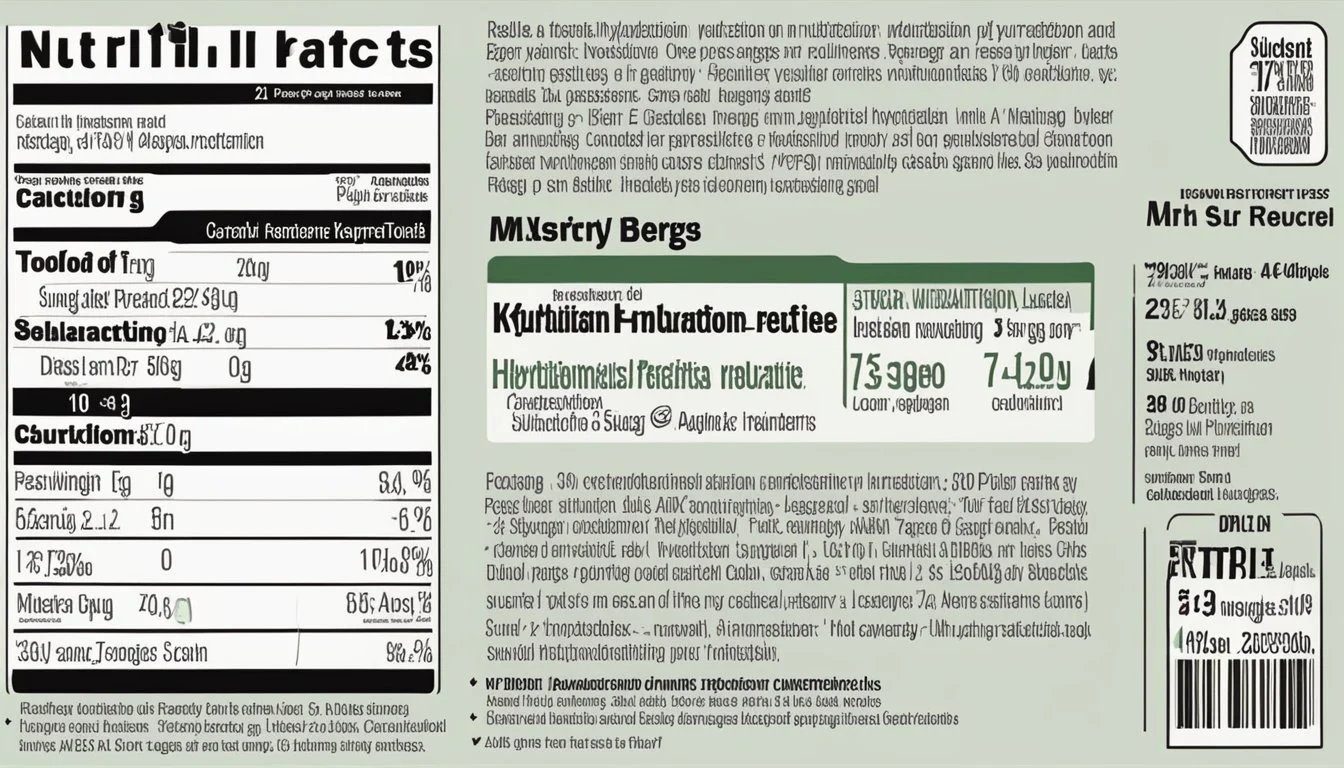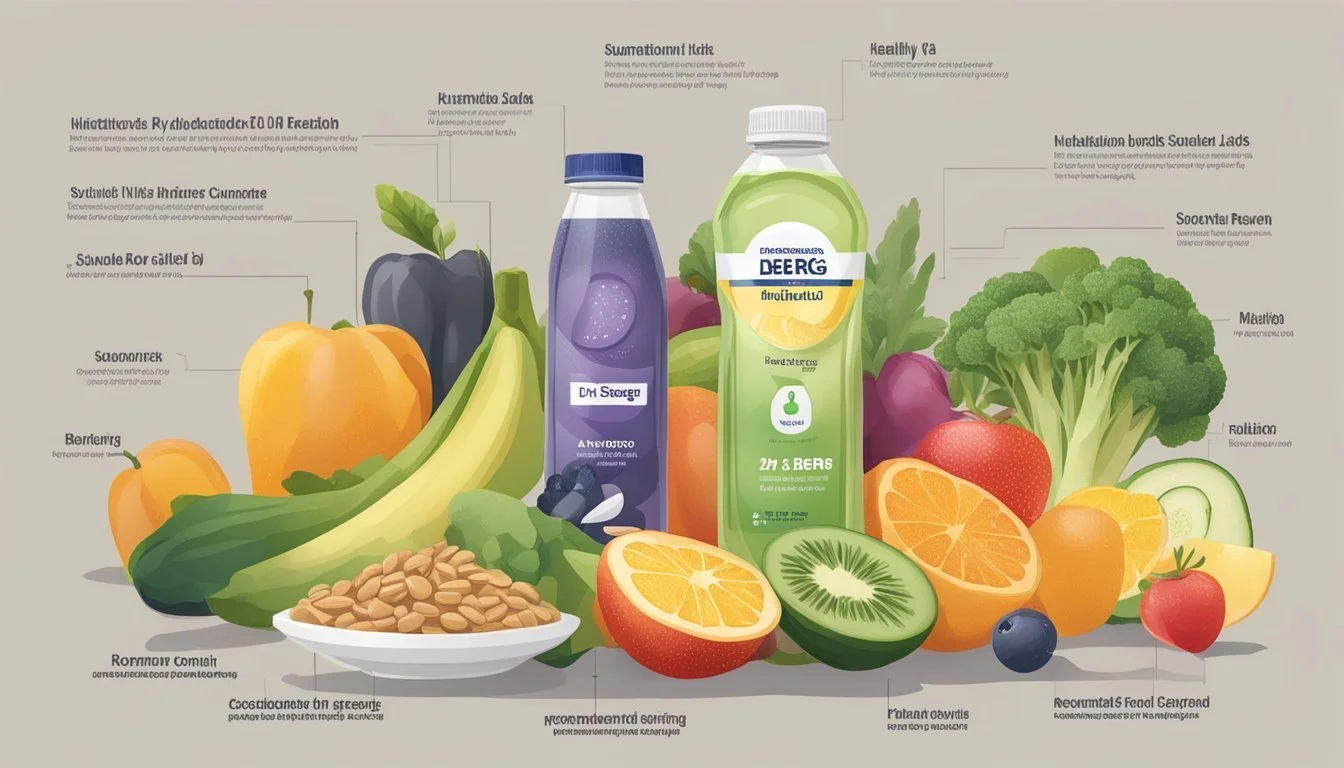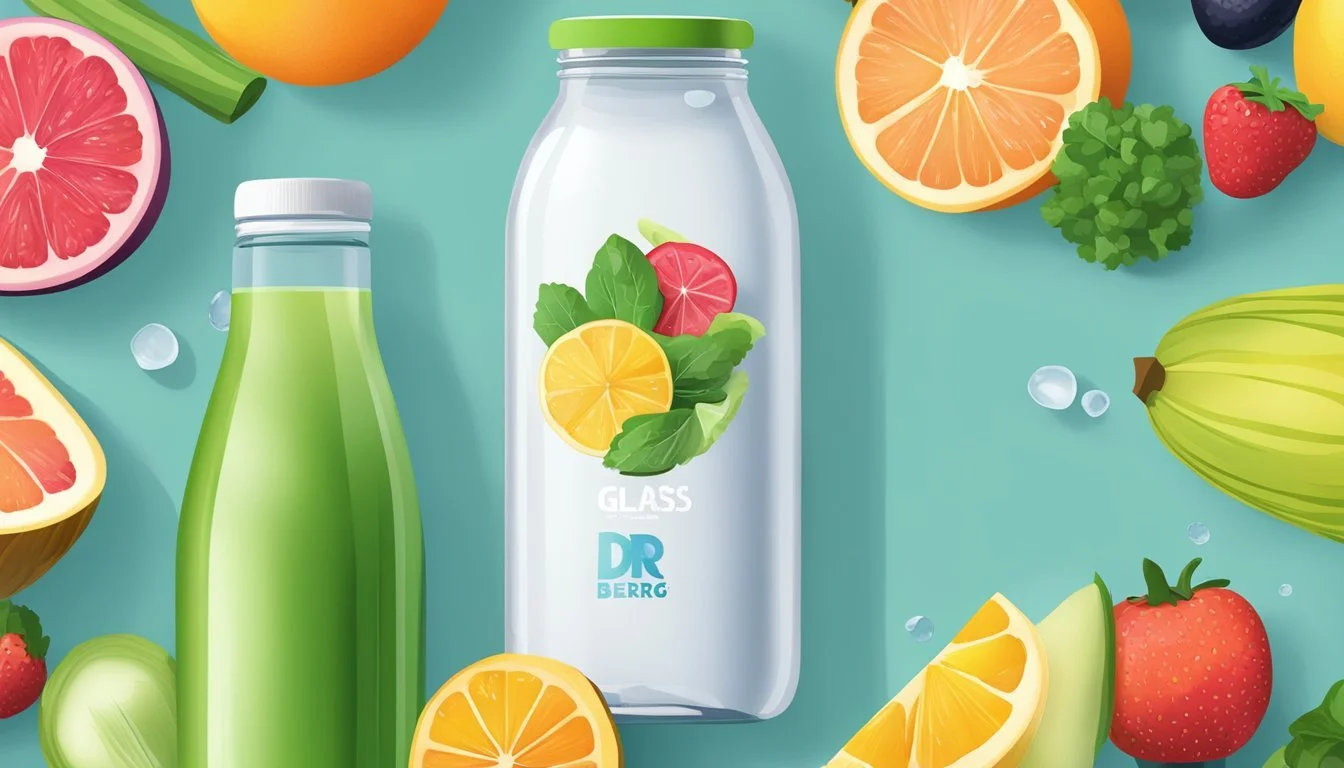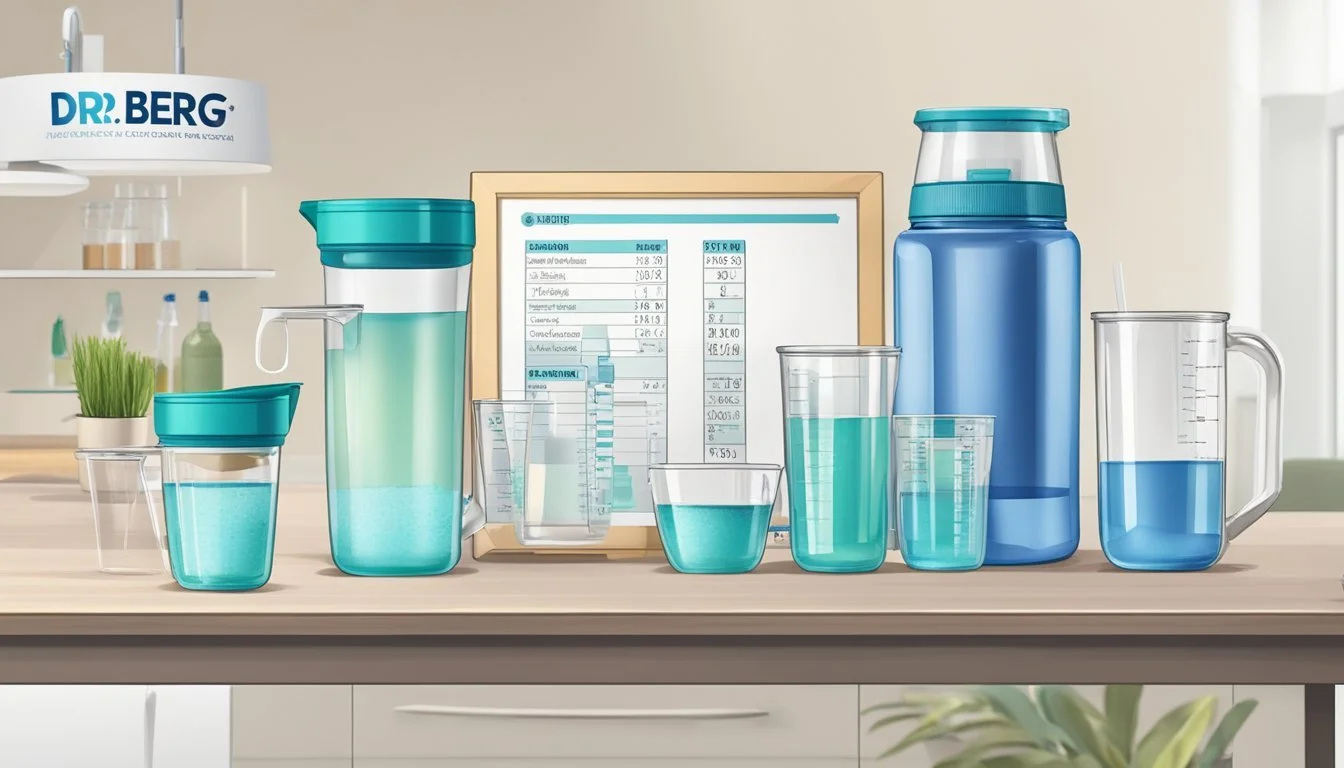How Many Servings of Dr. Berg Zero Sugar Hydration Is Too Much
Expert Insights
Finding the perfect balance with Dr. Berg’s Zero Sugar Hydration Electrolyte Powder is essential for maximizing hydration without overdoing it. This supplement is designed to improve hydration, muscle function, and energy levels without the added sugar that can weigh you down. Despite its benefits, moderation is key when it comes to consumption.
Experts recommend not exceeding three servings a day to avoid potential electrolyte imbalances and other side effects. This ensures you stay hydrated without overwhelming your body with too many electrolytes. It's crucial to pay attention to your individual needs and consult with a healthcare provider if you have any underlying health conditions.
By understanding the right amount of this supplement, consumers can make informed decisions and enjoy the benefits without risk. Exploring the optimal usage can lead to better hydration practices and overall wellness.
Understanding Dr. Berg Zero Sugar Hydration
Dr. Berg Zero Sugar Hydration is an electrolyte powder designed to boost hydration without relying on sugar or artificial sweeteners. The following sections delve into its formulation, the role of electrolytes in maintaining proper hydration, and the significance of its zero sugar content.
What Is Dr. Berg's Electrolyte Powder?
Dr. Berg's Electrolyte Powder is a hydration supplement that contains essential electrolytes like potassium and Himalayan salt. It’s marketed as a zero-sugar option, making it suitable for those following a keto diet or avoiding sugar. Each serving provides 1,000mg of potassium, a key electrolyte often missed in other hydration formulas.
The powder is designed for easy mixing with water, providing a convenient way to stay hydrated. Available in flavors such as orange and lemonade, it appeals to those seeking a tasty yet health-conscious hydration solution. With 50 servings per container, it offers a cost-effective means of maintaining electrolyte balance.
The Role of Electrolytes in Hydration
Electrolytes are minerals that help balance fluids in the body, crucial for muscle function, nerve signaling, and hydration. Key electrolytes include sodium, potassium, magnesium, and calcium. These minerals work together to ensure water is distributed efficiently throughout the cells.
Dr. Berg's Electrolyte Powder emphasizes potassium, which supports muscle contractions and nerve function. Sodium, sourced from Himalayan salt, aids in fluid retention and balance. These electrolytes are especially important during intense exercise or hot weather, where significant fluid loss can occur through sweat.
Significance of Zero Sugar Formulations
Zero sugar formulations, like Dr. Berg's Electrolyte Powder, provide hydration without the added calories that come from sugar. This is particularly beneficial for those on a keto diet or anyone looking to avoid the negative effects of high sugar intake. Traditional electrolyte drinks can contain high amounts of sugar, which may spike blood glucose levels and lead to an energy crash.
Dr. Berg's product uses natural sweeteners such as stevia and monk fruit, offering a sweet taste without the drawbacks of sugar or artificial sweeteners. This makes the powder a healthier option compared to many other hydration solutions on the market.
Nutritional Profile and Ingredients
Dr. Berg Zero Sugar Hydration Keto Electrolyte Powder is specially formulated to provide essential nutrients and electrolytes with a zero-sugar composition. It contains key minerals like potassium, magnesium, and sodium, and is sweetened with sucralose for flavor enhancement.
Key Minerals and Nutrients
This hydration powder is loaded with important electrolytes essential for body function. Notably, it contains 1,000mg of potassium per serving. Additionally, it includes:
Magnesium
Sodium
Calcium
Chloride
Zinc
These minerals help hydrate the body, support muscle function, and replenish necessary nutrients, making this powder ideal for keto dieters and athletes.
Importance of Potassium, Magnesium, and Sodium
Potassium helps regulate heart function and fluid balance. The high potassium content in Dr. Berg's formula aids in preventing cramps and maintaining electrolyte balance.
Magnesium is crucial for energy production, muscle contraction, and nerve function. Its inclusion supports overall metabolic processes.
Sodium helps prevent dehydration and maintain proper fluid balance. Adequate sodium levels are vital for nerve transmission and muscle function.
These three minerals work together to ensure optimal hydration and bodily function.
Understanding Sweeteners and Flavors
Dr. Berg Zero Sugar Hydration uses sucralose as a sweetener. It’s calorie-free and does not affect blood glucose levels, making it suitable for those monitoring sugar intake.
The product also includes natural and artificial flavors to enhance taste without adding extra calories. This makes it a palatable option for those looking to stay hydrated without consuming sugar.
The combination of these components ensures a pleasant taste while maintaining the keto-friendly, zero-sugar formulation.
Health and Dietary Considerations
Using Dr. Berg Zero Sugar Hydration Keto Electrolyte Powder can influence various health and dietary aspects, such as managing blood sugar, aiding in weight loss, and supporting keto diets and intermittent fasting.
Keto Diet and Intermittent Fasting
Dr. Berg's electrolyte powder is particularly beneficial for those following a keto diet and practicing intermittent fasting.
The product contains zero sugar and is designed to support ketosis by providing essential electrolytes like potassium and Himalayan salt. These components help maintain electrolyte balance, crucial for those reducing carb intake.
This supplement can also help mitigate common issues like the "keto flu," where symptoms such as headache and fatigue occur due to electrolyte imbalance.
Managing Diabetes and Blood Sugar Levels
For individuals managing type 2 diabetes or those concerned about blood sugar levels, Dr. Berg’s product offers an advantageous option. Its zero-sugar formulation ensures it does not spike insulin levels.
This makes it a good hydration choice for those needing to keep their blood glucose in check. However, as each person’s dietary needs may vary, it’s advised to monitor how the body responds and adjust the servings accordingly.
Potential Role in Weight Management
Electrolytes play a supportive role in weight management. Proper hydration and electrolyte balance can optimize overall bodily functions, helping to maintain energy levels and reduce feelings of fatigue.
When combined with a healthy diet and workouts, this powder may aid in sustaining weight loss journeys. By addressing key elements like hydration and electrolyte needs, the product assists users in achieving their fitness and health goals more effectively.
Users should pay attention to serving sizes to avoid overconsumption, as excessive intake of any supplement can have undesirable health effects.
Benefits of Adequate Hydration
Proper hydration plays a critical role in maintaining fluid balance, supporting muscle function, and improving cognitive abilities. It also helps boost energy levels and physical performance.
Fluid Balance and Muscle Function
Hydration is essential for maintaining the body's fluid balance. This balance is crucial for physiological processes such as nutrient transport and temperature regulation.
Adequate hydration ensures that muscles receive the necessary electrolytes, like sodium and potassium. These electrolytes support muscle contractions and prevent cramps.
Consuming electrolyte powders, such as Dr. Berg's Zero Sugar Hydration, can help quickly replenish these electrolytes. Proper fluid and electrolyte levels contribute to better muscle performance and reduced fatigue during physical activities.
Cognitive Function and Concentration
Staying hydrated positively impacts cognitive functions, including memory and concentration. Dehydration can impair brain functioning, leading to difficulty focusing, short-term memory loss, and slower decision-making.
Hydration affects the brain's capacity to conduct electrical signals and maintain neural connectivity. Ensuring the body has enough fluids can enhance cognitive performance and mental clarity.
Products high in electrolytes can maintain optimal hydration levels, supporting better brain health and reducing the risk of cognitive decline.
Energy Levels and Physical Performance
Hydration is closely linked to energy levels and physical performance. Dehydration can lead to a decrease in blood volume, making the heart work harder to pump blood and reducing overall stamina.
Electrolytes found in hydration supplements can restore energy and improve endurance. This makes it easier to maintain high performance in physical activities.
Dr. Berg's Zero Sugar Hydration, for example, offers a blend of necessary electrolytes to boost energy without added sugars, making it ideal for sustained physical activity and recovery.
Risks and Symptoms of Imbalance
It's important to understand the risks associated with both dehydration and overhydration. An imbalance in electrolytes can lead to various health complications, some of which may require medical attention.
Recognizing Dehydration and Overhydration
Dehydration occurs when the body loses more fluids than it takes in. Common symptoms include dry mouth, fatigue, and dizziness. This can happen due to excessive sweating, not drinking enough fluids, or illness.
On the other hand, overhydration can lead to water intoxication, where excess water dilutes essential electrolytes like sodium in the blood. Symptoms of overhydration include headache, nausea, and confusion.
Both conditions can disrupt normal cellular functions, making it crucial to maintain a balanced intake of fluids and electrolytes.
Electrolyte Imbalance and Its Symptoms
An electrolyte imbalance can result from either not consuming enough electrolytes or consuming too many fluids that dilute electrolyte levels. Symptoms of this imbalance may include muscle cramps, irregular heartbeat, and fatigue.
A specific condition related to electrolyte imbalance is hyponatremia, where sodium levels in the blood become too low. This can lead to symptoms like headache, confusion, and even seizures.
Maintaining proper levels of potassium, sodium, magnesium, and calcium is vital for muscle function, nerve signaling, and overall cellular health.
When to Seek Medical Advice
It's crucial to seek professional help if symptoms of dehydration, overhydration, or electrolyte imbalance become severe.
Symptoms requiring immediate medical attention include extreme fatigue, persistent muscle cramps, irregular heartbeat, and mental confusion.
Healthcare providers can perform blood tests to check electrolyte levels and recommend appropriate treatments to restore balance. This could include fluid replacement therapies, dietary adjustments, or medications.
Consulting a healthcare provider ensures that any electrolyte imbalances or hydration issues are addressed promptly and appropriately.
How to Use Dr. Berg's Hydration Powder
Proper usage of Dr. Berg's Hydration Powder is essential to maximize its benefits and ensure optimal hydration without overconsumption. The following guidelines cover recommended servings, daily incorporation, and mixing tips to make the most of this supplement.
Recommended Servings and Dosage
Dr. Berg's Hydration Powder should be consumed in moderation to avoid potential side effects associated with excessive electrolyte intake.
Standard Serving Size: One scoop (approximately 11.5 grams) mixed in 16 ounces (450 ml) of water.
Daily Limit: It is typically recommended to limit to 1-2 servings per day, depending on individual hydration needs and activity levels.
Always consult with a healthcare provider to tailor servings to personal dietary needs, especially if engaging in intense physical activity or following a specific diet plan.
Incorporating into Your Daily Routine
Like any supplement, consistency is key.
Morning Hydration: Start the day by adding a serving to your water to replenish overnight losses.
Pre and Post-Workout: It can be beneficial to consume a serving before or after a workout for enhanced hydration and muscle function.
Evening Use:** If additional hydration is needed, a serving in the evening can help restore balance.
Incorporate this into meals or pair with snacks like fruits or nuts to ensure balanced nutrition.
Mixing Instructions and Consumption Tips
Proper mixing ensures the powder dissolves completely and delivers an even taste.
Mixing Steps:
Fill a glass with 16 ounces (450 ml) of cold water.
Add one scoop of the powder to the water.
Stir or shake vigorously until the powder is fully dissolved.
Consumption Tips:
Use cold or room-temperature water for the best dissolving results.
For a flavor twist, consider mixing it with coconut water or adding a splash of lemon juice.
Plan hydration around meals and physical activities to maintain balanced electrolyte levels throughout the day.
By following these guidelines, individuals can effectively incorporate Dr. Berg's Hydration Powder into their routine to achieve optimal hydration and support overall health.
Lifestyle Factors Influencing Hydration Needs
Lifestyle factors such as exercise routine, environmental conditions, and stress levels significantly impact your hydration needs. Understanding how these factors affect your body can help tailor hydration strategies more effectively.
Exercise and Sweating
During exercise, the body loses water and electrolytes through sweating. The intensity and duration of physical activity influence the amount of fluids required.
Tips:
Monitor Sweat Rate: Gauge how much you sweat and adjust your fluid intake accordingly.
Electrolyte Balance: Use sports drinks or electrolyte supplements to replenish lost minerals.
Hydration Timing: Drink water before, during, and after exercise to maintain hydration levels.
Environmental Conditions
Hot or humid climates increase the body’s need for fluids. High temperatures lead to more sweating, resulting in faster dehydration.
Tips:
Climate Awareness: Adapt fluid intake based on the weather.
Frequent Sipping: Instead of large amounts at once, drink small sips regularly.
Special Considerations: Activities under direct sunlight or in high humidity may require additional hydration strategies.
Stress and Sleep
Both stress and lack of sleep can alter hydration needs. Stress affects hormone levels, which can influence fluid retention and loss, while poor sleep may disrupt the body's balance.
Tips:
Stress Management: Practices like meditation and relaxation can help regulate hydration needs.
Sleep Quality: Aim for consistent, good-quality sleep to maintain proper hydration balance.
Daily Routine: Incorporate hydration as a part of managing overall wellness, including stress and sleep habits.
By considering these lifestyle factors, one can better manage hydration and ensure optimal health.









